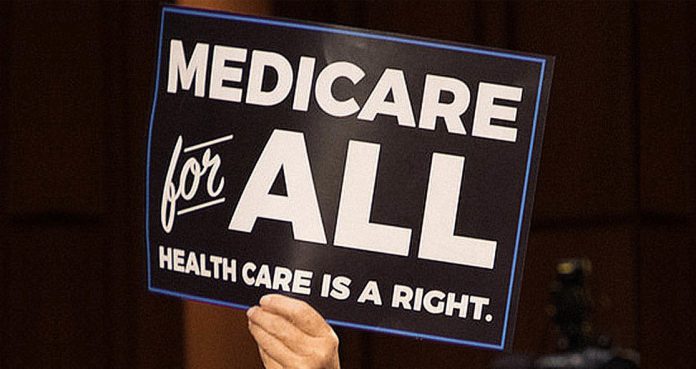A new study, published Wednesday in PLOS Medicine, has found that “Medicare for All” would help save money with lower healthcare costs.
Researchers found that the single-payer healthcare system would save money over time during the first year.
Study author Christopher Cai told FierceHealthcare, “The study is the first of its kind that reviewed analyses of single-payer proposals and provides strong evidence that Medicare for All would be financially affordable for the U.S.”
The researchers looked at 22 economic analysis by the government, business organizations, and academics of national and state-level single-payer plans across a few states.
They found 19 of these analyses showed America would save money in the first year of the adoption of Medicare for All, approximately 3.5 percent of total healthcare spending.
The researchers also found that all of the studies showed healthcare savings through the single-payer system in the long run, with the greatest source of savings expected to come from reduced administrative costs and lower drug prices.
The authors explained that the actual costs and savings will depend on features and implementation under a specific proposal.
The recent study could help reinforce the debates for Medicare for All. Cai said, “It’s always our hope that elected officials will spread accurate information. If you watched the [Democratic presidential] debate last night, a lot of people were referencing that Medicare for All will cost more and we can’t afford it. In light of this evidence, I think that’s simply not true.”
“Obviously, I have personal opinions about healthcare reform,” he added, adding “the study included a broad group of authors from both sides of the debate who all made disclosures of any potential conflicts.”
Cai explained, “The strength of our review is it looked at single-payer proposals in a lot of different contexts and shows a pretty clear consensus. We looked at both studies from conservative-leaning and liberal-leaning think tanks and organizations and all the studies showed savings over time.”
Another study author, Dr. James Kahn, said, “Even though they start with different single designs and modeling assumptions, the vast majority of these studies all come to the same conclusion. This suggests that fears that a single-payer system would increase costs are likely misplaced.”























